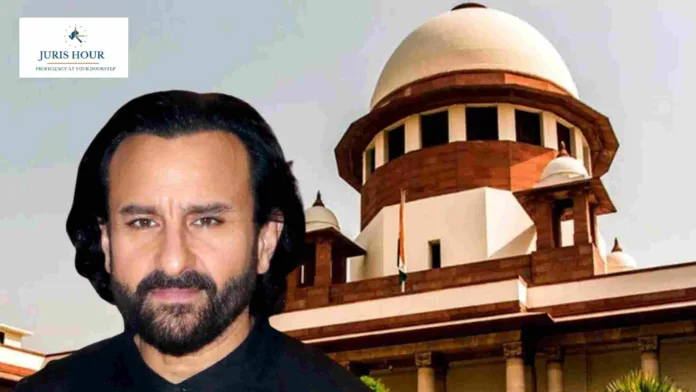The Supreme Court on Friday granted an interim stay on a Madhya Pradesh High Court directive that had sent a decades-old property dispute over the royal estate of Bhopal’s last Nawab, Hamidullah Khan, back to the trial court for fresh adjudication.
A Bench of Justices P.S. Narasimha and Atul Chandurkar issued notices to all parties in response to a petition filed by Omar Faruq Ali and Raashid Ali, descendants of the Nawab’s elder brother, challenging the High Court’s June 30 order.
The dispute centres on the ownership of the Nawab’s extensive private estate. In 2000, a trial court had upheld the exclusive rights of the Nawab’s daughter, Sajida Sultan, her son and former India cricket captain Mansoor Ali Khan Pataudi, and their heirs — including actor Saif Ali Khan, Soha Ali Khan, Saba Sultan, and veteran actress Sharmila Tagore. That ruling relied heavily on a 1997 Allahabad High Court judgment, which was later overturned by the Supreme Court in 2019.
Instead of applying the 2019 precedent to settle the matter conclusively, the Madhya Pradesh High Court chose to remand the case for re-examination — a move the petitioners’ counsel, senior advocate Devadutt Kamat, argued was inconsistent with the Civil Procedure Code.
The legal battle began in 1999, when members of the Nawab’s extended family, including the late Begum Suraiya Rashid and her children, as well as Nawabzadi Qamar Taj Rabia Sultan, filed civil suits seeking partition, possession, and equitable distribution of the estate.
The trial court sided with Sajida Sultan, ruling that the estate was not governed by Muslim Personal Law but instead devolved to her under constitutional provisions. Following Hamidullah Khan’s death in 1960, the Government of India had issued a certificate in 1962 under Article 366(22) of the Constitution, recognising Sajida Sultan as both the ruler (Gaddi) and the rightful heir to the personal estate.
The plaintiffs, however, contended that Muslim Personal Law should apply, allowing all legal heirs a share. They argued that the 1962 certificate — never formally challenged — should not prevent an equitable partition.
The respondents, including Saif Ali Khan and his family, maintained that the rule of primogeniture applied, granting Sajida Sultan sole inheritance of both title and property.
With the Supreme Court’s intervention, the High Court’s remand order will remain on hold until the matter is examined further.

